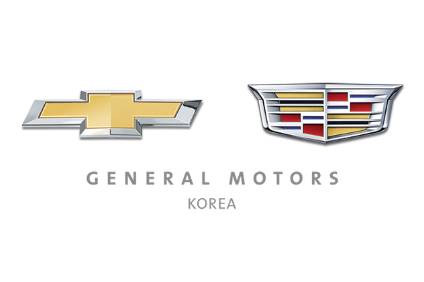
GM Korea (GMK) faces two crucial months of talks with the South Korean government, creditors including state-owned Korea Development Bank and major shareholders, as management look to rebuild the company’s bombed-out balance sheet and meet upcoming obligations including debt repayment schedules.
Last month’s announcement that it will shut down by May the second-largest of three assembly plants in the country, the Gunsan plant with a capacity of 260,000 vehicles per year, was preceded by months of feverish local speculation on whether the US automaker is preparing to quit the country altogether.

Discover B2B Marketing That Performs
Combine business intelligence and editorial excellence to reach engaged professionals across 36 leading media platforms.
GMK’s global business has been shrinking for some time, with its market share in its home market plunging to a new low of 7.5% last year after sales fell by almost 27% to just over 132,000 units.
The company has struggled to keep up with new product development that is taking place at domestic rivals Hyundai Motor and Kia Motors, while competition from smaller local manufacturers including Renault-Samsung and Ssangyong has also intensified.
Vehicle exports have been affected in recent years by the withdrawal of the Chevrolet brand from numerous markets around the world. Last year it exported just 200 cars to Europe, compared with 137,000 units in 2012.
The Chevrolet brand has also been downsized or withdrawn from many developing markets around the world, including in southeast Asia, India and Africa. Total export volumes fell by 5.9% to 392,146 units last year, resulting in a more than 12% decline in global sales to 524,547 units.
GMK’s shrinking business levels have put a severe strain on its finances. Last year it made a loss of some KRW900 billion (US$845m),according to unconfirmed local reports, resulting in a cumulative loss of around KRW3 trillion (US$2.8 billion) for the 2014-17 period.
Capacity utilisation continued to fall across all its plants in 2017, with the Gunsan facility – which makes the Cruze and Orlando models – by far the worst performer. The company is estimated to have utilised just 57% of its available 910,000-unit annual capacity in the country last year and output is expected to continue to decline in the next few years.
Around 2,500 workers applied for voluntary redundancy before the recent deadline, fearing they would be forced to leave in any case at a later stage without any compensation from the company. Of these, 1,000 were from the Gunsan plant’s 1,550-strong workforce.
The South Korean government is also concerned about the repercussions the closure will have on the local economy, with thousands more depending on incomes from providing goods and services to the plant and its workers.
South Korea is not the cheapest production base available to General Motors, particularly with China having become such a major production base for the company.
The global vehicle market also is set to change rapidly over the next decade, with the global share of electric and hybrid vehicles set to rise sharply. This will require all automakers to invest heavily in their operations.
Soon after GM acquired most of the assets of its bankrupt former partner Daewoo Motors back in 2001, the US auto giant changed its strategy radically in Asia – with China becoming its main focus and its priority investment destination.
General Motor’s local joint ventures sold more than 4m vehicles in China last year compared with just over 3m units in the US, so from a business point of view this was the correct decision.
GMK’s management is now under severe pressure to come up with a viable business plan for the company and this will inevitably entail more closures and job cuts.
The company will need a lot of new capital to refinance its balance sheet. It has applied for government subsidies to help it carry out the necessary restructuring and has hinted that the future of its other operations also depend on the level of local support.
But just as importantly, it needs a come up with a clearly defined and focused business plan for the company. General Motor needs to decide what role its South Korean business will play in its global operations.






